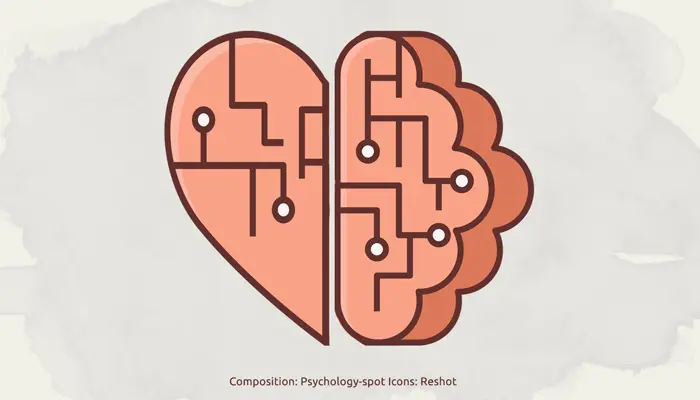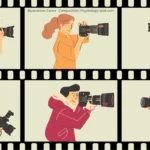
Polarization is advancing by leaps and bounds. We embrace and disseminate increasingly extreme positions with disturbing insouciance, forgetting about the pondered “mesòtes” or fair middle point that Aristotle once promoted. And the more extreme our ideas become, the more tension is in the air. The more reactive we become, the more likely society is to become unbalanced.
Psychology has an explanation for this phenomenon: selective exposure.
What is Selective Exposure?
In 1957, the social psychologist Leon Festinger developed the theory of cognitive dissonance, according to which we have a tendency to seek harmony between our beliefs, attitudes, and behaviors, which leads us to avoid dissonance since it generates a state of discomfort inside.
Over the years, numerous psychological studies have been carried out that confirm this theory: we prefer information that supports our points of view and avoid information that may contradict them. We are victims of confirmation bias. We tend to notice and remember the details that confirm our expectations, ideas or stereotypes to avoid the effort involved in changing our beliefs and restructuring our mental schemes.
This theory is the basis on which selective exposure bias is based. Basically, it is the tendency to seek and focus on information that matches our attitudes, beliefs, and opinions, while avoiding data that contradicts them.
As a result, we tend to select and read information only from like-minded media outlets. This phenomenon is particularly evident on highly politicized social issues, from abortion to same-sex marriage to immigration control.
Selective Exposure in action
Recently, researchers from the Universitat Ramon Llull recruited more than 2,000 people to answer a series of questions that assessed their beliefs about diversity, specifically the importance of cultural and ethnic diversity for society.
Participants then had to choose between two options: read eight arguments about refugees from a perspective opposite to their own; That is, people in favor of supporting refugees had to read arguments against, and vice versa. If they chose the option of reading arguments against, they could receive 10 euros, but if they chose to read eight arguments consistent with their beliefs, the reward was less, 7 euros.
Five months later, the participants submitted to the second part of the study, but they did not have to read the arguments for or against their ideas, but only answered a questionnaire in which their beliefs about diversity were reassessed.
The team found that 58.6% of people showed selective exposure bias as they chose to read arguments consistent with their own beliefs, even if it meant receiving less money. In fact, their bias also influenced their beliefs about diversity.
Those who were against helping refugees and were not receptive to reading information that might contradict their beliefs had more negative views of diversity over time than those who were also against helping refugees, but they were open to hearing different arguments.
The researchers concluded that “Negative views of diversity may stem, in part, from the bias to avoid positive diversity information over time.” This means that the selective exposure bias not only pushes us to take more polarized positions by reinforcing our initial beliefs, but also influences our behavior, pushing us to make even more irrational decisions, even if they are less advantageous for ourselves.
The dangers of feeding back beliefs
Those who immerse themselves in selective exposure and, therefore, select a certain type of media, are also more predisposed to believe and accept as true any type of information that comes from those sources and reinforces their opinions.
In fact, research has found that we tend to be more critical of information that is inconsistent with our pre-existing beliefs and look at it with a magnifying glass. Instead, we are more likely to believe information that is consistent with our ideas, so it is easier for us to be misled or manipulated by that type of content.
With the spread of the Internet, we have access to a large amount of information from different sources, but it is precisely this huge range of information possibilities that leads us to be more selective.
Despite the fact that the supply of information is greater, something that in theory would help us to expand our horizons, in reality what we do is lock ourselves in information bubbles that coincide with our beliefs. Far from broadening our perspective, we tend to look for evidence that confirms our way of seeing the world.
The algorithms of social networks further reinforce this trend by proposing content according to the information that we have already consumed. That echo chamber reinforces the idea that we are right and the others are wrong. Today we have more “evidence” than ever that we are right. Even if it’s not like that.
However, this bias that instills us with false confidence also causes us to become more rigid in thought and more intolerant of opinions that we do not share. This phenomenon, replicated at a social level, polarizes us even more, breaking the bridges of dialogue and leading to explosions of violence.
The enormous power of plurality
Although it is true that we cannot consume all the information generated and for a purely practical matter we must select it, we cannot lose sight of the fact that growth occurs when we get out of our comfort zone and put our beliefs to the test.
Deliberately seeking information that is critical to what we think can be very helpful as it allows us to understand different ways of seeing the world, find other options and, of course, develop greater mental flexibility.
Embracing plurality also helps us move away from absolute truths and, ultimately, makes us freer and less manipulable people. We must remember that post-truth spreads by manipulating information and appealing to our previous beliefs because that way we are less critical of what we read. However, with a little awareness and a more open attitude we can escape selective exposure and its consequences.
Sources:
De keersmaecker, J & Schmind, K. (2022) Selective exposure bias predicts views on diversity over time. Psychonomic Bulletin & Review; 10.3758.
Frimer, J. A. et. Al. (2017) Liberals and conservatives are similarly motivated to avoid exposure to one another’s opinions. Journal of Experimental Social Psychology; 72: 1-12.



